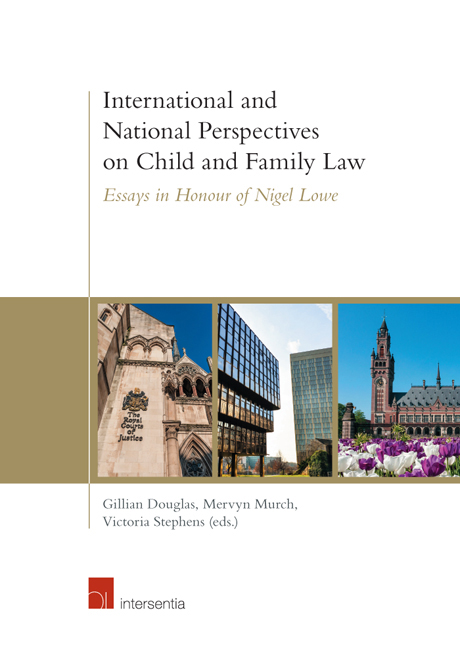Book contents
- Frontmatter
- Foreword
- Acknowledgements
- Contents
- List of Cases
- List of Contributors
- Introduction: Nigel Vaughan Lowe: An Appreciation
- Part I Family and Child Law in England and Wales
- Part II International Family Law
- Part III The Future for Family and Child Law
- The Hague Child Abduction Convention in a Changing World
- Using Research to Improve Outcomes for Abducted Children
The Hague Child Abduction Convention in a Changing World
from Part III - The Future for Family and Child Law
Published online by Cambridge University Press: 12 October 2018
- Frontmatter
- Foreword
- Acknowledgements
- Contents
- List of Cases
- List of Contributors
- Introduction: Nigel Vaughan Lowe: An Appreciation
- Part I Family and Child Law in England and Wales
- Part II International Family Law
- Part III The Future for Family and Child Law
- The Hague Child Abduction Convention in a Changing World
- Using Research to Improve Outcomes for Abducted Children
Summary
INTRODUCTION
The world has changed in many different ways over the four decades which have passed since the Permanent Bureau of the Hague Conference on Private International Law started researching the subject of international child abduction in 1977. This research led to the drawing up of the 1980 Convention on the Civil Aspects of International Child Abduction (‘Abduction Convention’), the express aim of which is to protect children from the harmful effects of international abductions. Many of the changes which have taken place have had a significant impact on the phenomenon of international child abduction and the implementation of the mandatory return mechanism adopted in the Convention. These changes include: new social norms and trends which have resulted in changes in the characteristics of abductors; new legal norms, especially increased recognition of the human rights of children and their parents relevant to family disputes; and new psychological and other research which provides insights, inter alia, in relation to the developing capacities of children and the impact on them of separation from primary caregivers and exposure to domestic violence. In addition, regional and global political developments have, on the one hand, resulted in the European Union adopting its own distinct model for intra-EU cases and, on the other hand, led to a continuing worldwide expansion of the Abduction Convention, including accession by a wider variety of states (including Japan, Iraq, Russia and Pakistan) whose legal systems, political climate and culture are quite different from the liberal, secular Western democracies of most veteran Contracting States. The objective of this chapter is to consider some of the challenges which the Abduction Convention now faces in the light of the various developments mentioned above and to suggest courses of action which might help to promote uniform, child-centred and effective implementation of the Convention. I will divide these challenges into three: interpretation and application (section 2); child participation (section 3); and compliance (section 4).
A chapter on the continuing challenges faced in implementing the Abduction Convention is particularly appropriate for a volume in honour of Nigel Lowe, in light of the remarkable contribution which Nigel has made to the literature on this Convention over the past two decades.
- Type
- Chapter
- Information
- International and National Perspectives on Child and Family LawEssays in Honour of Nigel Lowe, pp. 315 - 328Publisher: IntersentiaPrint publication year: 2018



